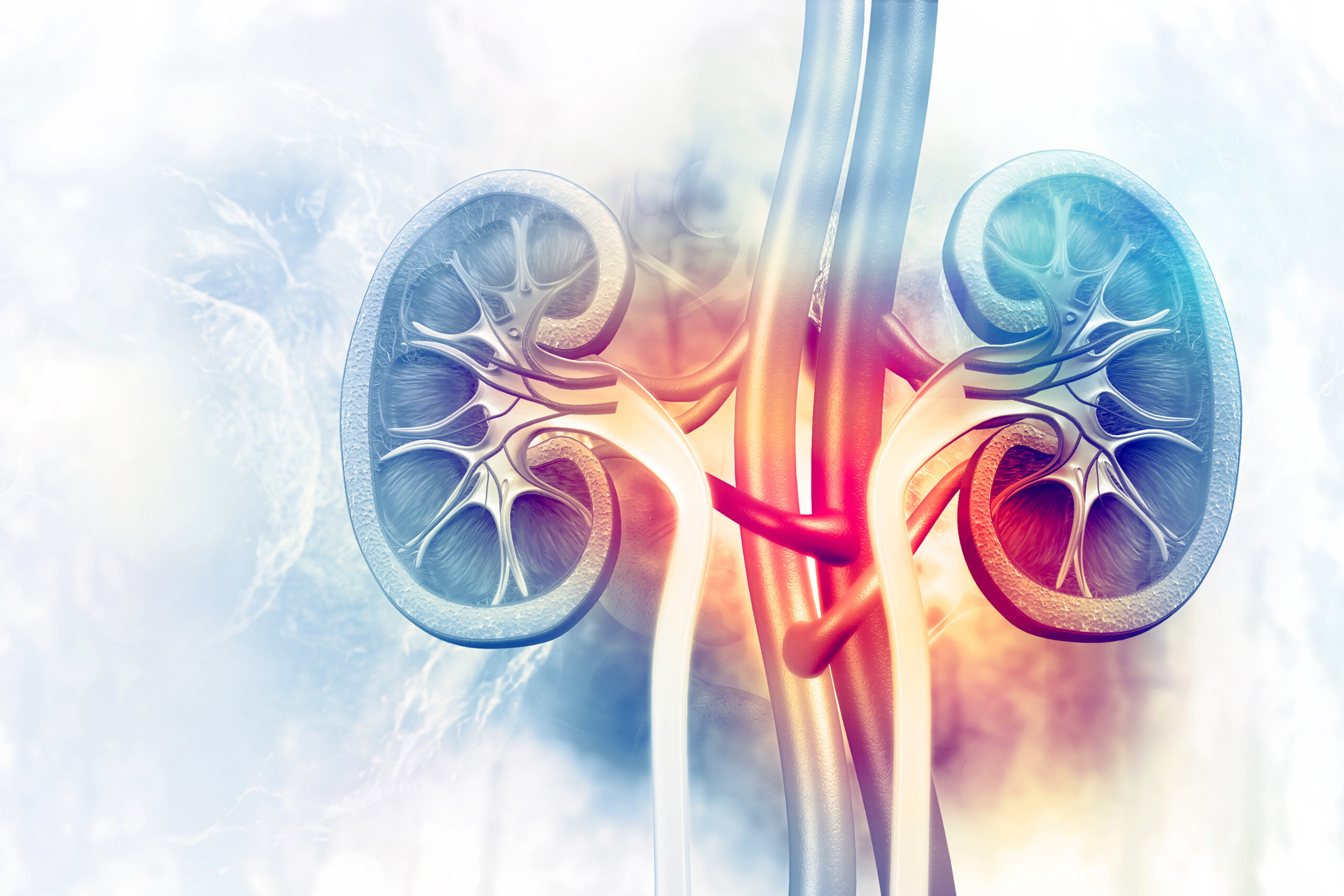
Chronic kidney disease (CKD) is a condition in which the kidneys are no longer able to clean toxins and waste from the blood. CKD is often the result of other health problems that impact the kidneys and cause deterioration, either all at once or slowly over time. Individuals at risk for developing CKD include those with high blood pressure, diabetes, or a family history of kidney disease. Living with kidney disease can be difficult, and as the disease progresses, more care is needed to maintain a high quality of life. Here is what you should know about the stages of chronic kidney disease.
Stage 1
Glomerular filtration rate, or GFR, measures kidney function based on how much serum creatinine, a waste product, is in the blood. The resulting measurement helps to determine the stage of kidney disease. In Stage 1, the GFR is usually normal or only slightly elevated. Typically, there are no symptoms to indicate damage to the kidneys. Kidneys are capable of filtering blood even if they are not working perfectly. Generally, the only signs of illness at this point include higher than normal levels of creatinine in the blood, blood or protein in the urine, or evidence of kidney damage in a scan, ultrasound, or X-ray. Treatment involves following a kidney-friendly diet, maintaining healthy blood pressure and blood sugar levels, exercising regularly, and discontinuing smoking.
Stage 2
While the GFR is worsening in Stage 2, symptoms are usually mild and will likely be the same as in Stage 1. Routine monitoring of protein in the urine and serum creatinine in the blood will be more important, as will eating a healthy diet and maintaining general health. While there is no cure for kidney disease, progression can be minimized with lifestyle changes, as well as proper monitoring from a healthcare professional.
Stage 3A and Stage 3B
Stage 3 is separated into two parts, based on GFR levels. As kidney function continues to decline in this phase, waste products begin to build up more quickly and can cause high blood pressure, anemia, diabetes, and bone disease. Symptoms may consist of fatigue, fluid retention, swelling in the arms and legs, shortness of breath, changes in the frequency and color of urination, kidney pain, and difficulty sleeping due to muscle cramps or restless legs. Patients with Stage 3 kidney disease should receive treatment from a nephrologist or healthcare professional who specializes in kidney function. Additionally, patients should be evaluated by a dietician as a better diet may help preserve kidney function. Regular exercise can also be beneficial at this stage.
Stage 4
Patients diagnosed with Stage 4 CKD will likely need a transplant or kidney dialysis soon to prolong their life. Uremia, which is caused by a buildup of waste products, is common, as are high blood pressure, heart disease, and other cardiovascular issues. In addition to the symptoms found in Stage 3 kidney disease, patients may experience nausea, vomiting, a metallic taste in the mouth, bad breath, loss of appetite, difficulty concentrating, and nerve challenges, such as numbness in the fingers and toes. Patients with Stage 4 CKD should visit a nephrologist every three months for monitoring, testing, and management of additional related health concerns. Kidney dialysis or kidney transplant is usually recommended when kidney function decreases to 15% or less. Conversations surrounding the various types of dialysis should begin at this stage.
Stage 5
Also known as late-stage kidney disease, Stage 5 CKD occurs when the kidneys have lost almost all ability to function. Additional symptoms at this point include headaches, constant fatigue, inability to concentrate, little-to-no urine production, swelling, muscle cramps, and changes in skin pigmentation. The heavy buildup of toxins in the body causes general feelings of illness. Red blood cells and vitamin D production will also decline. Dialysis or a transplant is necessary at this stage, and both can lead to a higher quality of life within a short period of time following treatment.
Securing Hospice Care Services
If you or a loved one is unable to receive treatment for CKD, it may be time to consider hospice care services, as the disease is not fully curable. Contact us today for more information about hospice care services for a loved one in the late stages of CKD. Our customized hospice care services include the support of nurses, doctors, and mental and spiritual health counselors, who provide comprehensive care for patients and their loved ones as the patient nears the end of life.